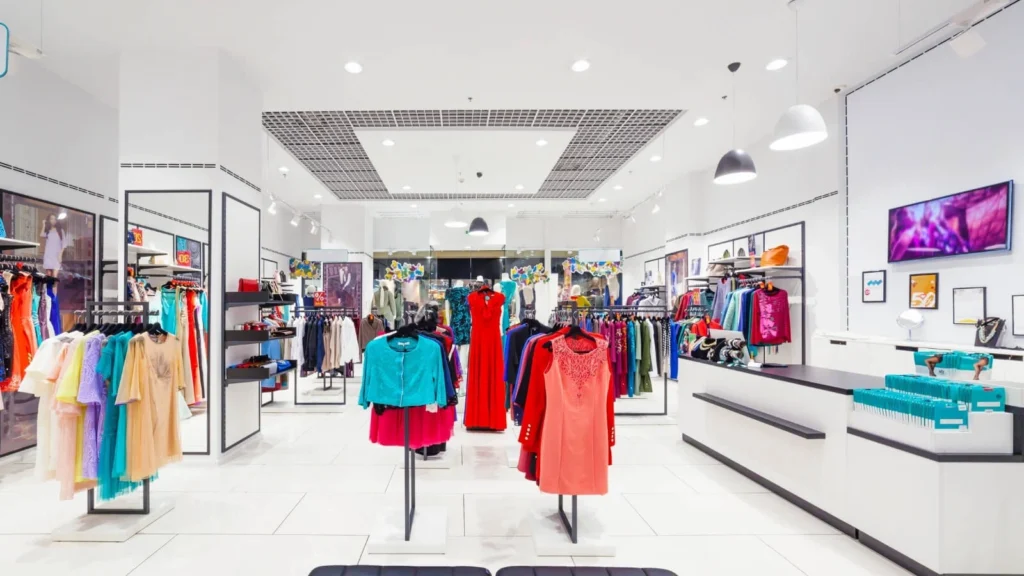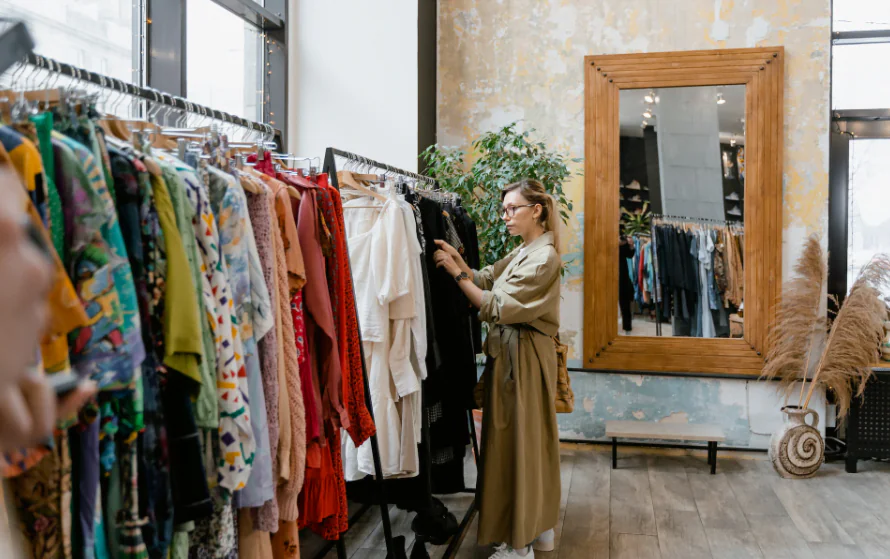The fashion industry holds a certain allure, and the prospect of a career surrounded by clothing, shoes, and accessories can be exciting. But is working in clothing/shoe/accessory stores a practical career path? The answer depends on your interests, skills, and long-term goals.
This guide dives into the realities of this industry, exploring the various job options, educational considerations, and what a typical day might look like for someone working in this field.
Is There a Future in Fashion Retail?
Despite the rise of online shopping, physical stores continue to play a crucial role in the fashion industry. Here’s why:
- Customer Experience: Trying on clothes, receiving personalized recommendations from a knowledgeable staff member, and the social aspect of shopping in-store are all experiences that online retail can’t fully replicate.
- Product Expertise: Retail staff can answer questions about materials, fit, and care instructions, helping customers make informed purchases.
- Inventory Management: While online stores have streamlined ordering processes, physical stores require careful inventory management to ensure the right products are always in stock and displayed attractively.
Lucrative Opportunities and Rewarding Experiences
While some positions within clothing/shoe/accessory stores may not offer the highest salaries, there are career paths with good earning potential. Here’s a breakdown of some of the highest-paying jobs in the industry:
- General Manager (Average Annual Salary: $65,000): Overseeing the entire store operation, managing staff, and ensuring smooth customer service are just some of the responsibilities of a general manager.
- Shoe Designer (Average Annual Salary: $82,000): If you’re creative and have an eye for design, this role allows you to conceptualize and design footwear.
- Clothes Designer (Average Annual Salary: $75,000): Similar to shoe designers, clothes designers translate their creativity into new clothing lines, considering fabric types, trends, and wearability.
- Merchandise Coordinator (Average Annual Salary: $75,000): This role involves managing inventory levels, ensuring proper product placement, and creating visually appealing displays to entice customers.
Stepping into the Fashion World: Entry-Level Opportunities
The beauty of this industry is that many positions require minimal formal education and offer on-the-job training. Here are some entry-level options to get your foot in the door:
- Retail Cashier (Average Annual Salary: $27,000): Operating the cash register, processing payments, and assisting customers with purchases are some core responsibilities.
- Apparel Associate (Average Annual Salary: $30,000): This role involves keeping clothing organized, restocking shelves, assisting customers with finding items, and offering recommendations.
- Footwear Associate (Average Annual Salary: $27,000): Helping customers find the right shoes, fetching different sizes, and keeping the shoe section organized are typical duties.
- Jewelry Sales Associate (Average Annual Salary: $31,000): Providing customer service, answering questions about jewelry, and assisting with selecting the perfect piece are essential aspects of this role.
What Skills Are Essential for Success?
While specific skill sets may vary depending on the position, some qualities are generally valuable across the board:
- Customer Service: Building rapport with customers, addressing their needs patiently, and offering a positive shopping experience are crucial.
- Communication Skills: The ability to clearly communicate with colleagues and customers is essential for smooth operation and effective sales.
- Product Knowledge: Having a good understanding of the products you’re selling allows you to answer customer questions confidently and offer relevant recommendations.
- Teamwork: Retail environments thrive on collaboration, so working effectively within a team is essential.
Finding the Right Fit: Does Your Personality Suit Fashion Retail?

If you enjoy interacting with people, have an interest in fashion, and are detail-oriented, then a career in clothing/shoe/accessory stores could be a good fit. However, it’s important to consider the realities of retail work, which often involves:
- Working Weekends and Holidays: Retail stores typically operate extended hours during weekends and holidays, which can impact your personal schedule.
- Meeting Sales Quotas: Some stores may have sales quotas for employees, which can add pressure to the job.
- Physical Demands: Being on your feet for long periods, lifting and organizing merchandise, and keeping the store clean can be physically demanding.
Education and Certifications: Are They Necessary?
Formal education isn’t mandatory for most positions in clothing/shoe/accessory stores. However, some paths may benefit from specific degrees or certifications:
- Apparel and Textiles: This degree equips you with in-depth knowledge about clothing, fabrics, and textiles, which can be valuable for design-oriented roles or positions in higher management.
- Retail Management: If you aspire to become a store manager or merchandise coordinator, a retail management degree can provide valuable insights into store operations, inventory management, and marketing strategies.
- Design or Fashion Design: These degrees are ideal if you dream of a career as a shoe designer, clothes designer, or jeweler. They offer comprehensive training in design principles, sketching, and the technical aspects of creating fashion items.
Trade Schools and Apprenticeships
For some specialized professions within the industry, trade schools or apprenticeships are the preferred route. Here are some examples:
- Goldsmiths and Jewelers: Many goldsmiths and jewelers gain their expertise through apprenticeships with experienced professionals. Vocational schools also offer programs that teach the necessary skills, such as gemstone identification, metalworking, and jewelry repair.
- Tailors and Clothiers: Similar to goldsmiths and jewelers, tailors and clothiers often learn their craft through apprenticeships. These apprenticeships combine hands-on training with classroom learning, teaching them everything from measuring and pattern drafting to alterations and tailoring techniques.
- Shoe Repair: While there aren’t formal educational programs for shoe repair, apprenticeships under experienced cobblers are the traditional way to enter this field.
A Day in the Life of Someone Working in Clothing/Shoe/Accessory Stores
The specific duties of your day will vary depending on your role, but here’s a general idea of what a typical workday might entail:
- Morning: Most stores open early in the morning. Your shift might begin with stocking shelves, organizing displays, and ensuring the store is presentable for customers.
- Customer Service: Throughout the day, you’ll interact with customers, answer their questions about products, assist them with finding the right sizes and styles, and process their purchases at the cash register.
- Maintaining the Store: Keeping the store clean and organized is an ongoing task. This might involve folding clothes, tidying up shelves, and ensuring fitting rooms are neat and ready for customers.
- Closing: As the store closes, you might be responsible for counting cash drawers, completing paperwork, and cleaning up before leaving.
Is a Career in Clothing/Shoe/Accessory Stores Right for You?
The world of clothing/shoe/accessory stores offers a diverse range of opportunities, from entry-level sales positions to design-focused careers and management roles. If you have a passion for fashion, enjoy interacting with people, and are a team player, then this industry can be a rewarding path.
However, it’s important to be realistic about the demands of retail work, including irregular hours, potential physical strain, and the customer service aspect.
By carefully considering your interests, skills, and career goals, you can determine if a career in clothing/shoe/accessory stores is the right fit for you. Remember, even if you don’t envision yourself working in retail for your entire career, the experience you gain can be valuable and transferable to other industries.

